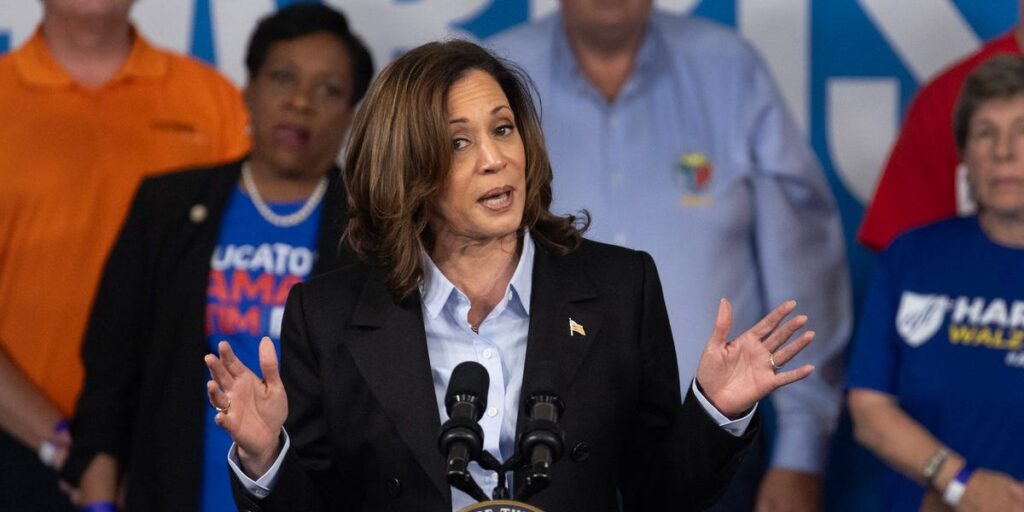Presidents appointing a member of the opposite party to their Cabinet is, as Rep. Jamie Raskin of Maryland put it on Tuesday, a “hallowed American tradition.” But it’s one that neither President Joe Biden nor President Donald Trump honored, though both men appointed members of the opposite party to non-Cabinet positions.
While Harris’ pledge isn’t all that unusual — Trump’s running mate, Sen. JD Vance, later said a second Trump administration would do the same — it does feel a bit anachronistic in a time marked by bitter partisanship.
“It may be difficult to find a rational, sane person who still identifies as a Republican” that would agree to serve in Harris’ cabinet, Sen. Richard Blumenthal of Connecticut quipped.
On Capitol Hill, Democrats largely praised Harris’ pledge as a savvy move, aside from a handful of progressives. “I particularly don’t think that’s necessary,” Rep. Alexandria Ocasio-Cortez of New York said. “It depends on who the Republican is,” Sen. Bernie Sanders of Vermont said wryly, before abruptly declaring that he didn’t “want to speculate on that” any further.
But none were able — or willing — to put forward any specific names for specific Cabinet positions.
“There are a lot of Republicans that I think are capable of assuming Cabinet positions,” Rep. Jim McGovern of Massachusetts said. “If I name anybody, that’ll screw it up for them.”
“I’m not floating people’s names for particular positions,” Rep. Ro Khanna of California said, shortly after heaping praise on Republican Rep. Brian Fitzpatrick of Pennsylvania and former Republican Rep. Mike Gallagher of Wisconsin.
There are, of course, former Reps. Liz Cheney of Wyoming and Adam Kinzinger of Illinois, arguably the most prominent Republicans in the country who have backed Harris.
“I don’t want to get ahead of ourselves, because I have no idea whether they want to do that, and how the [Vice President] feels, but both Congressman Kinzinger and Congresswoman Cheney have been very well received by Democrats,” Raskin said.
Cheney hasn’t ruled out serving in a Harris administration, saying last week that she’s “not focused on that” right now. But Kinzinger said this week that he’d be willing to do it.
“I love defense. I love foreign policy. And I think that’s where she’s frankly shown she’s a little more hawkish than Democrats have been, so that would be a good area to bring a standard Republican in,” Kinzinger told the Los Angeles Times this week.
While a military or national security-related role would seem to be the most natural fit for either Cheney or Kinzinger — after all, they remain doctrinaire conservatives on domestic policy — there’s already some early indication that appointing either of them would generate some resistance, and not just from the usual progressive suspects.
Sen. Tim Kaine of Virginia, a member of the Senate Armed Services Committee, specifically singled out Secretary of Defense as a role that Harris should not fill with a Republican — something that both President Barack Obama and President Bill Clinton did.
“I don’t like that,” Kaine said. “I think that it sends the message that the Republicans are better on defense than Democrats.”
There’s also Sen. Mitt Romney, the retiring Utah Republican who remains the loudest anti-Trump voice in Congress. Though he said Harris’ pledge was a “positive step,” he made clear on Tuesday that he’s not interested in serving in her administration.
“I’ve got a long list of people she can consider,” Romney said. “I’m not one of them.”
Read the full article here















